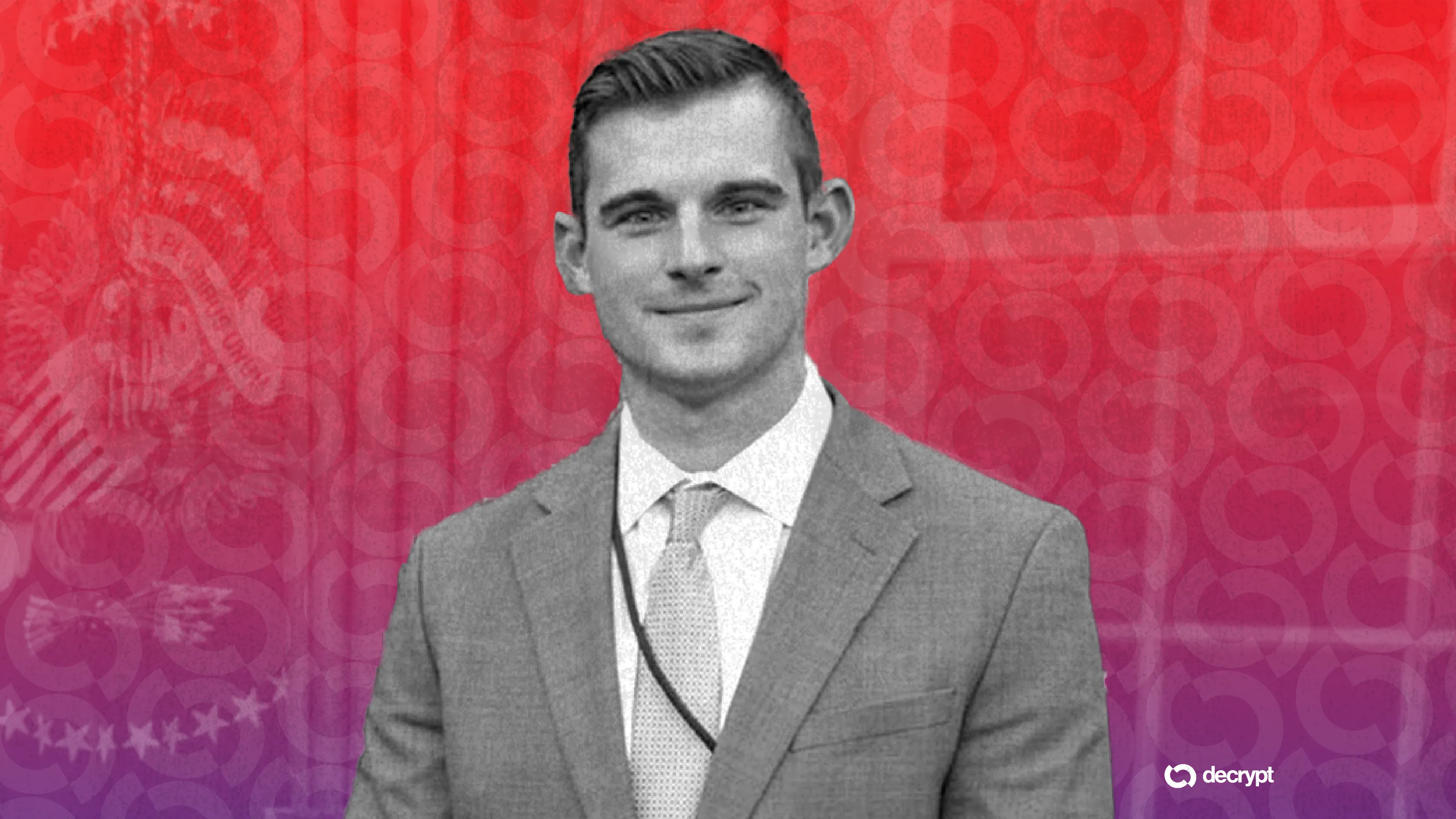In brief
- Bo Hines will step down as head of the White House Crypto Council, ending his tenure as the administration’s top digital-assets adviser.
- Deputy Director Patrick Witt is reportedly in line to succeed him, though the White House has yet to confirm a replacement.
- Hines played a key role in shaping stablecoin oversight and digital asset policy, including the GENIUS Act and the administration’s crypto framework.
The White House’s top crypto policy adviser said Saturday he would be leaving his post to return to the private sector, opening up speculation on who could be next best suited for the role.
As the Executive Director of the President's Council of Advisers on Digital Assets, Bo Hines has overseen industry consultations and contributed to the administration’s digital-asset policy framework since January.
The council’s Deputy Director, Patrick Witt, will reportedly step into the role, according to journalist Eleanor Terrett, though no formal decision has been announced. The council’s work is expected to continue unaffected until a replacement is found.
The White House has not provided a timeline for naming a replacement and did not immediately respond to Decrypt’s request for comment.
“How Witt interacts with lawmakers and international partners will be crucial,” Andrew Rossow, a public affairs attorney and CEO of AR Media Consulting, told Decrypt.
The next appointment could either “boost or further dampen and tarnish the U.S.'s position as a leader in blockchain policy, especially as other regions move quickly to clarify their regulatory environments,” Rossow said.
‘Honor of a lifetime’
During his tenure, Hines met with key industry stakeholders, coordinated interagency discussions on stablecoin oversight and market integrity, and oversaw the release of a policy framework outlining the administration's next steps for digital assets in the U.S.
Serving in President Trump’s administration and working alongside AI and crypto czar David Sacks “has been the honor of a lifetime,” Hines said Sunday in a post on X.
Hines thanked the crypto industry for its “unwavering support,” while signaling he will continue to back the industry as it “thrives in the U.S.”
Hines also said he was proud of the council’s work in advancing the administration’s digital-asset agenda and crypto policy initiatives.
Those efforts have helped push the GENIUS Act into law, which established a regulatory framework for dollar-backed stablecoins.
Hines also oversaw the release of the administration’s comprehensive digital asset policy report, though notably skipping any mention of U.S. prospects for a national Bitcoin reserve.
Echoing Rossow’s sentiment, Ray Song, founder of liquid staking protocol aPriori, told Decrypt, an appointment supportive of crypto “could accelerate the policy momentum we’re already seeing; an inexperienced pick could risk undoing some of the progress made.”
Though that may be difficult, according to Hillary Adler, co-founder and chief commercial officer at BitcoinOS, who told Decrypt, “individuals tend to leave or get fired from the Trump administration at every turn.”
“Any candidate must understand going in that they’ll likely need to be philosophically aligned with Trump regarding crypto policy,” she said. “A loyalist executor is essential for any longevity at the position.”

